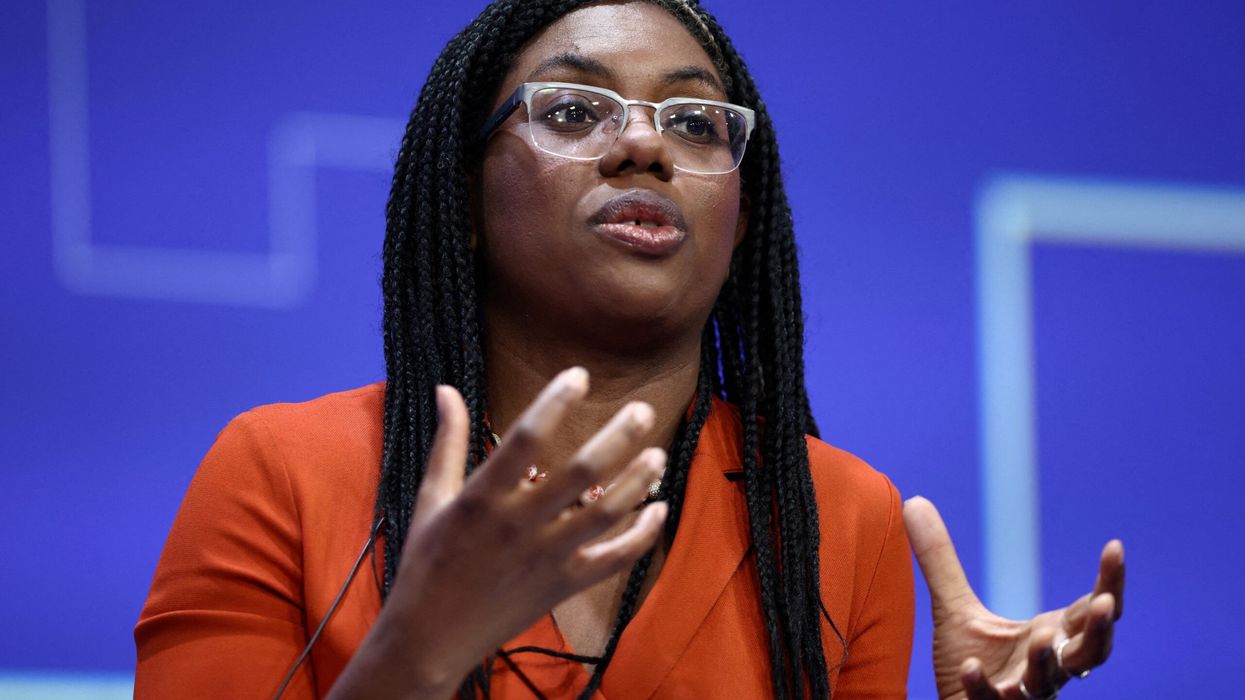Trade Secretary Kemi Badenoch, who served as the equalities minister during the pandemic, addressed the impact of the coronavirus on various communities during her testimony at the Covid inquiry on Monday (27).
She highlighted ongoing challenges the government faces in combatting misinformation, emphasising the harm caused by conspiracy theories, Sky News reported.
Additionally, Badenoch pointed out that the government has yet to effectively tackle misinformation, which posed difficulties in addressing beliefs during the pandemic.
Badenoch expressed concerns about the prevalence of misinformation, noting instances where individuals accused her of being part of a conspiracy to spread infection and cited deaths allegedly linked to government information.
She emphasised the government's struggle in effectively addressing misinformation in the era of rapid social media dissemination.
She said, "I don't know how we solved it, but in terms of gaps, I think there is a lesson in the pandemic that this is an area that needs some addressing."
According to her testimony, Badenoch stressed on the need for substantial efforts to address this issue, emphasising that she had not witnessed sufficient measures within the government to tackle disinformation.
During the inquiry, Badenoch extensively discussed the government's approach toward groups experiencing disproportionate Covid outcomes.
She highlighted a contrast between public perception attributing outcome disparities to "prejudice, discrimination, racism" and the government's findings.
Badenoch clarified that the government's assessment suggested ethnicity was not directly linked to increased vulnerability to the virus.
Instead, it indicated that belonging to a specific ethnicity might correlate with other factors, like occupation or living conditions, potentially increasing vulnerability levels.
Badenoch also pointed out concerns within certain communities regarding government vaccine initiatives, expressing that some perceived these plans as part of a secretive scheme to reduce the population.
She attributed these perceptions partly to people's experiences in countries where government trust was lacking, a sentiment that carried over to the UK.
Addressing the term BAME (Black, Asian, and Minority Ethnic), Badenoch expressed her view that it was unhelpful.
She elaborated that the term's broad categorisation lumps together diverse groups such as black African, Pakistani, and Bangladeshi communities, making it challenging to discern the unique impacts on individual groups.
Additionally, Badenoch remarked that the term stems from an approach that considers white people as the norm.
Badenoch also spoke about variations in Covid outcomes across different ethnic groups, noting improvements for black individuals between the first and second waves of the virus.
However, she observed that outcomes remained stagnant or worsened for Pakistani and Bangladeshi communities.
She attributed this trend primarily to factors such as multi-generational households and challenges in adhering to measures like social distancing.
Additionally, she noted that individuals from specific minority backgrounds were often employed in high-risk occupations, such as care, taxi driving, or security, contributing to these disparities.
Earlier in the day, Dame Angela McLean provided testimony to Lady Hallett's inquiry. As the current chief scientific adviser to the government and the second most senior adviser during the pandemic, the professor of mathematical biology recounted September 2020 as the pandemic's "worst" period.
She indicated that at that time, scientists urged the government to take action to curb rising infections, but no measures were implemented.
This lack of action contributed to the continued spread of Covid, with a perceived absence of effective intervention.
"We said - you should do something now. But nothing happened," she told the inquiry.
McLean, who referred to Rishi Sunak as "Dr Death" during the pandemic due to the Eat Out to Help Out scheme, mentioned that she would have advised against the policy had she been consulted.
The scheme aimed to encourage individuals to visit bars and restaurants by subsidising meals.




